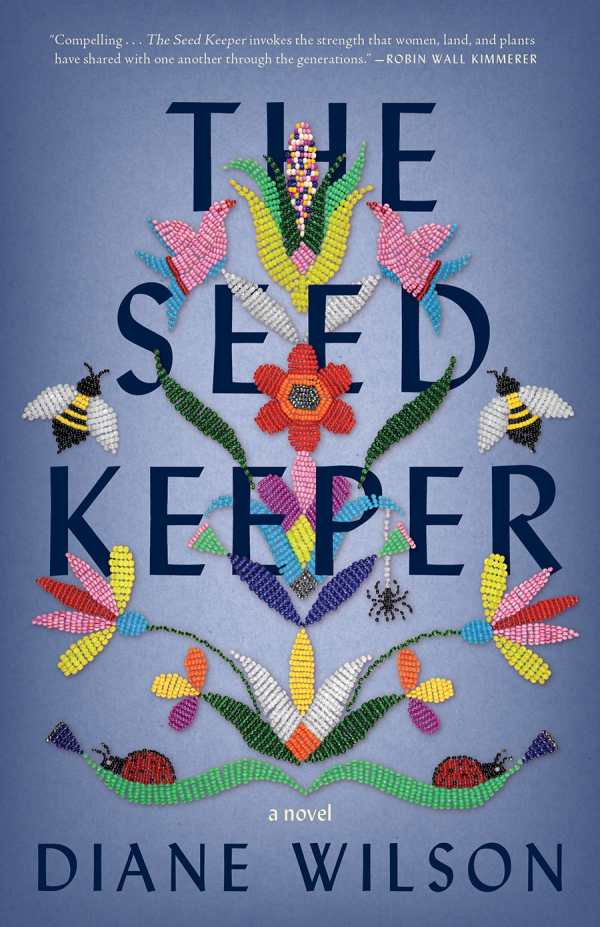The Seed Keeper
Told through the voices of strong, albeit fractured, women across generations, The Seed Keeper is a novel about legacies, generational trauma, and the inescapable call of one’s roots.
Rosalie’s mother died when she was four. She spent the next several years with her father, a Dakota man who raised her with deep reverence for the rugged, fertile land of southern Minnesota—land stolen from the Dakota people. When he dies, Rosalie is whisked into foster care, cut off from her family and her history.
Guided most by a desire for security, Rosalie marries a white farmer with whom she has a son, Tommy; cultural tensions define the next two decades of her life as she navigates being a Native woman in a white, Christian town that shuns her, despite being built on her ancestral home.
Upon her husband’s death, Rosalie returns to the abandoned cabin she once shared with her father. Reconnecting with family friends and relatives, including her great aunt Darlene, Rosalie finds that the home that she was denied never stopped waiting for her, dormant beneath the soil, ready to spring forth.
The cyclical nature of trauma is a core theme: Rosalie’s grandmother was kidnapped as a child and taken to a state boarding school; the abuse she endured left scars that she transferred to her daughter, Agnes, who committed suicide. Rosalie chafes against her husband’s profit-driven farming practices and his desire to suppress Tommy’s Native heritage, discouraging her from teaching him the traditional growing practices that were passed down to her. As an adult, Tommy is also caught between two poles: honoring his late father’s wishes, and respecting his mother’s roots.
With a focus on women who carry the scars of the past alongside hope for the future, The Seed Keeper is a profound novel about resilience and rebirth.
Reviewed by
Danielle Ballantyne
Disclosure: This article is not an endorsement, but a review. The publisher of this book provided free copies of the book to have their book reviewed by a professional reviewer. No fee was paid by the publisher for this review. Foreword Reviews only recommends books that we love. Foreword Magazine, Inc. is disclosing this in accordance with the Federal Trade Commission’s 16 CFR, Part 255.

